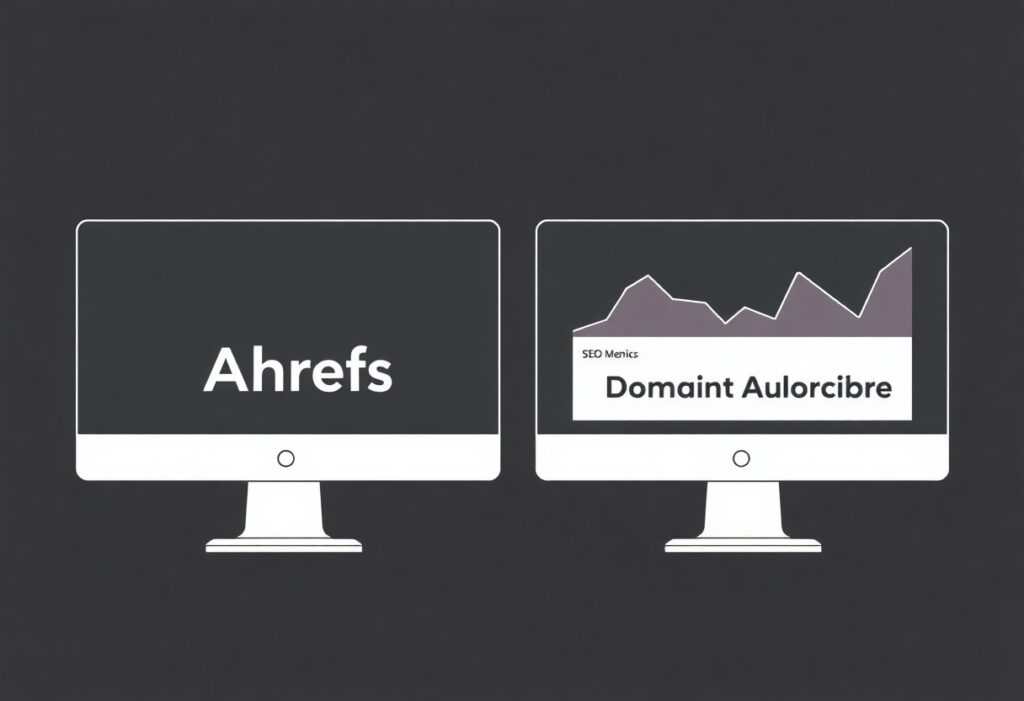Length matters when it comes to content length in SEO. You might be surprised to learn that longer content often performs better in search engine rankings. In this post, you will discover how the length of your content plays a vital role in attracting more traffic to your site. Not only does longer content provide more value to your readers, but it also allows you to incorporate relevant keywords effectively. This is vital for SEO. Moreover, as you seek to optimize your content strategy, understanding content length can help solidify your authority online. By utilizing these insights from Rank Authority, your website can climb the ranks and gain deserved visibility.

Key Takeaways:
- Content length plays a significant role in SEO rankings. In general, longer content tends to rank better. The reason for this is that longer articles usually provide more in-depth information, making them more valuable to users. This aspect aligns well with the search engine goal of delivering quality content.
- While focusing on content length, it is equally important to prioritize content quality. Search engines assess not just the word count, but how well your content answers user queries. Therefore, content length should complement useful, engaging material. Keeping this balance is necessary for effective SEO strategy.
- Another aspect to consider is that not every topic requires lengthy articles. For instance, some queries can be answered succinctly, and in these cases, shorter, clear content may perform better. Consequently, understanding your audience and their needs is key to deciding the appropriate content length.
—
The Importance of Content Length in SEO
Content length is a significant factor affecting SEO rankings. As stated earlier, search engines typically favor longer articles that comprehensively cover a topic. Therefore, businesses looking to improve their visibility should consider this. Additionally, longer content tends to receive more backlinks and social media shares. Consequently, longer articles can lead to improved domain authority over time.
Nevertheless, businesses must focus on delivering value through their content. For instance, Rank Authority specializes in optimizing content length and quality for better SEO performance. Consequently, finding the right balance will not only boost rankings but also engage your audience. As a result, they are more likely to return to your site for future information.
When all is said and done, keep in mind that length should not compromise quality. Instead, aim for a well-researched and informative piece. Following a strategic plan will ensure that your content achieves the desired results. By doing so, you can improve your SEO rankings effectively.

Understanding Content Length
Your journey into SEO isn’t complete without grasping the importance of content length. In the digital landscape, content length plays a significant role in determining how search engines judge the value of your content. A balance of depth and brevity can elevate your content, making it more appealing to both users and search engines. As you write, consider how the length of each piece influences your rankings and user engagement.
Definition of Content Length
For most SEO experts, content length refers to the total word count of a piece of written material. It’s not just about hitting a target number but ensuring that your content is comprehensive enough to cover the topic thoroughly. Longer content often tends to provide more in-depth information, which can improve the chances of better SEO rankings. However, this needs to be balanced with quality to maintain engagement.
Historical Perspectives on Content Length in SEO
On the evolving journey of SEO, there have been significant shifts in the perspective of content length. Initially, shorter articles were favored, often prioritizing quantity over quality. However, as search engines became more sophisticated, they started to reward longer, detailed content that answered user questions and provided value.
Content length has transitioned from the quantity-driven approach to an emphasis on quality and relevance. Early SEO strategies often focused on keyword stuffing and minimum word counts, leading to low-quality content that failed to engage users effectively. As algorithms advanced, search engines began penalizing this kind of content. Subsequently, longer pieces, typically ranging from 1,500 to 2,500 words or more, were favored, as they tended to have higher engagement rates and provide more significant value to users. Today, it is clear that quality content length—with relevant topics and valuable information—is imperative for achieving higher SEO rankings. Overall, understanding this evolution can help you navigate content strategy more effectively with Rank Authority’s expertise.
The Relationship Between Content Length and SEO Rankings
Any SEO professional knows that content length plays a significant role in your website’s ranking. While there isn’t a one-size-fits-all answer, longer content often results in higher search visibility. Search engines tend to favor comprehensive articles that adequately cover topics, providing value to the reader. The depth of information can enhance user engagement, reduce bounce rates, and, ultimately, improve your SEO rankings.
How Search Engines Evaluate Content Length
Behind the scenes, search engines analyze various factors to determine the quality of content length. They assess how well content matches search intent and whether it provides a thorough understanding of the subject. Metrics like dwell time and interaction rates indicate whether users find the content relevant, further influencing rankings. Your goal should be to meet and exceed user expectations through well-researched, longer content.
Case Studies and Data Analysis
Around the internet, several studies demonstrate the impact of content length on SEO rankings. Notably, data reveals that longer articles tend to receive more backlinks and social shares.
- Survey by Backlinko: Articles with 1,890 words ranked on the first page of Google.
- SEMrush Study: Pages between 1,000-2,000 words had a 50% higher chance of ranking well.
- HubSpot Analysis: Blog posts around 2,100 words generated 77% more traffic than shorter ones.
Understanding these statistics can be beneficial for your SEO strategy. You should aim to create informative, in-depth content to attract traffic and improve your rankings. Providing substantial value in your articles positions your brand favorably in the eyes of both users and search engines, encouraging organic growth and visibility.

Optimal Content Length for Different Types of Content
After analyzing various types of content, you’ll find that optimal content length significantly impacts your SEO rankings. Each content type has a unique requirement for length to maximize visibility and engagement. Here’s a breakdown:
| Content Type | Optimal Length |
|---|---|
| Blog Posts | 1,000 – 2,500 words |
| Product Descriptions | 300 – 500 words |
| Landing Pages | 600 – 1,200 words |
| Videos | 5 – 10 minutes |
| Infographics | 500 – 1,000 words |
Knowing the right length for each type of content enables you to craft more effective strategies for your SEO campaigns.
Blog Posts
Blog posts should convey your message clearly and engage your readers. Aim for 1,000 to 2,500 words. This length allows you to research deeply into your topics. Thus, you can include relevant keywords naturally, improving your chances of ranking well on search engines.
Product Descriptions
Content in product descriptions must be concise yet informative. Ideally, these descriptions should range from 300 to 500 words to effectively highlight your products’ features and benefits.
The effectiveness of your product descriptions often hinges on how well you balance information and engagement. Use less jargon and more straightforward language to connect with your audience. While it’s necessary to include key features, ensure you enhance user experience by explaining how your products solve problems. A well-crafted description can significantly boost conversions, making your offerings more appealing. In doing so, you’ll help shoppers make informed decisions while optimizing your websites for better search visibility.
Content Length vs. Content Quality
Unlike common belief, content length isn’t the sole indicator of quality. While longer content often provides more in-depth information, it’s crucial to prioritize the substance of your writing. You must ensure that each word serves a purpose; lengthy content that lacks meaningful insights won’t keep your readers engaged. Instead, focus on delivering valuable content that resonates with your audience. By striking a balance between content length and quality, you enhance your SEO rankings and foster a loyal readership. In the end, both elements work together to improve your site’s visibility in search engines.
Balancing Length and Substance
Behind every effective content strategy lies the balance between length and substance. While longer articles tend to rank better for specific keywords, maximizing word count without offering valuable insights can backfire. Aim for clarity and depth, ensuring that every section addresses your audience’s needs. The combination of engaging content and optimal length creates a fulfilling experience for your readers, ultimately leading to better SEO results.
The Role of User Engagement
Content that engages users is a powerful tool for enhancing your SEO rankings. Quality content should not only attract visitors but also encourage interactions, thereby increasing your site’s dwell time. If users find your content engaging, they are likely to share it, signifying its value to search engines. As a result, you enhance your chances of higher rankings. Moreover, strong user engagement signals demonstrate relevancy, boosting your credibility on search engine platforms. Therefore, prioritize creating engaging content that captivates your audience, subsequently improving your SEO credibility.
Quality content naturally leads to improved user engagement. When you create posts that are informative and resonate with your audience, they are more likely to spend time on your site, thus reducing bounce rates. A well-structured article that invites discussion and questions fosters an engaging environment. In turn, positive user engagement metrics can enhance your rankings significantly. Consequently, strive to produce quality content that encourages interaction—such as comments and shares—boosting your site’s visibility. By focusing on both content length and quality, you position your website effectively within the competitive landscape of SEO.
Strategies for Crafting High-Quality Long-Form Content
For achieving optimal content length in SEO, focusing on high-quality long-form content is crucial. Implementing effective strategies allows you to engage your audience and earn search engine favor. At Rank Authority, we know that well-researched content not only satisfies your readers but also boosts your SEO rankings significantly.
Research and Planning
Crafting long-form content starts with thorough research and careful planning. You should identify your target audience’s needs and preferences. Utilize tools to find relevant keywords, examine into trending topics, and analyze existing content. This will ensure your piece is rich in valuable insights, improving your chances of higher SEO rankings.
Structuring Your Content Effectively
Before you explore writing, it’s vital to structure your content effectively. A well-organized article enhances readability and user engagement. Use headings, bullet points, and concise paragraphs to break down complex ideas. This ensures that your audience can navigate and absorb information easily, increasing the likelihood of extended on-page time, which ultimately benefits your SEO rankings.
Hence, structuring your content effectively is only as beneficial as the flow and clarity it brings to the reader. Utilize clear headings to guide your audience through the different sections of your content. Bullet points can succinctly convey crucial information without overwhelming your readers. Shorter paragraphs break down your content into digestible pieces, enhancing readability. By making your content visually appealing and easily digestible, you will foster a better user experience, which can contribute positively to your SEO efforts.
Measuring the Impact of Content Length on SEO Performance
Now that you understand the significance of content length in SEO, it’s crucial to measure its impact on your SEO performance. By analyzing various metrics, you can identify how the length of your content correlates with your search engine rankings. The key is to balance quality and quantity, as content length alone won’t guarantee success. Therefore, keep track of your rankings, traffic, and engagement to assess how different lengths perform. Understanding these dynamics will enable you to fine-tune your content strategy for optimal results.
Key Metrics to Consider
Against this backdrop, several key metrics can help you evaluate the effects of content length on SEO. Focus on organic traffic, bounce rates, average session durations, and conversion rates. These indicators will paint a clear picture of your content’s effectiveness. It’s vital to analyze how longer content performs compared to shorter pieces. By doing so, you can make informed decisions that enhance your website’s visibility and engagement rates.
Tools and Techniques for Analysis
Along with understanding metrics, employing reliable tools and techniques will streamline your analysis of content length. Utilize platforms like Google Analytics and Ahrefs to gain insights into your traffic and ranking data over time. These tools will allow you to measure performance directly correlated to content length adjustments. Also, consider A/B testing various content lengths to see which resonates better with your audience and yields the best results.
Indeed, tools and techniques for analysis play a significant role in optimizing your SEO strategy through content length. Google Analytics provides valuable insights into user behavior, allowing you to observe how readers interact with your content. By discerning patterns in engagement, you could identify what length captivates your audience. Additionally, tools like SEMrush let you analyze competitor content, which helps you understand the successful strategies they implement. Coupled with A/B testing, these resources enable you to confidently adapt your content length for improved SEO performance. This informed approach can lead to better rankings and ultimately more traffic to your site, enhancing your visibility in the digital marketplace.
To wrap up
Drawing together the insights on content length in SEO, it becomes clear that it significantly impacts your SEO rankings. While the ideal content length can vary, longer posts often provide more value, thus attracting both users and search engines. Additionally, incorporating relevant keywords, maintaining readability, and ensuring quality will further enhance your content’s effectiveness. As you develop your strategy, keep in mind that engaging, well-structured content will naturally lead to better rankings. At Rank Authority, we harness AI to help you optimize for content length and improve your site’s visibility, ensuring you stay ahead of the competition.













